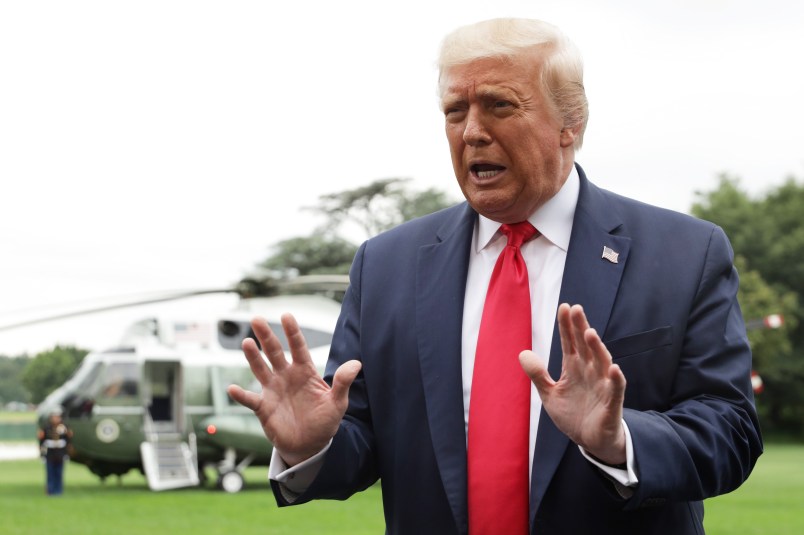President Donald Trump on Friday refused to condemn Russia over the poisoning of opposition leader Aleksei Navalny, even as world leaders, as well as officials from his own administration, have stepped in to censure the move.
Trump said at a press briefing on Friday that he intended to “look at it very seriously” when asked about Navalny’s poisoning.
When pressed about how the United States should react, the President said “I think we will,” while simultaneously appearing to cast doubt about whether or not the Russian government had been involved in the opposition leader’s poisoning.
“I don’t know exactly what happened,” Trump said as he often does when he doesn’t want to assume responsibility to call out those whom he views as potential allies.
“I think it’s tragic. It’s terrible, it shouldn’t happen. We haven’t had any proof yet, but I will take a look,” Trump added.
The German government had previously said that a chemical agent produced by the Soviet Union and thought to be used by the Kremlin was used in Navalny’s poisoning.
On Thursday, White House press secretary, Kayleigh McEnany, called Navalny’s poisoning “deeply reprehensible” adding that the United States would “hold those in Russia accountable wherever the evidence leads.” She also reiterated a claim that “no one has been tougher on the Russian government than this president.”
But Trump’s comments on Friday are a common refrain in his rhetoric on Russia — as he repeatedly has declined to address Russian president Vladimir Putin on a series of national security issues, among them, reports of Russian operatives offering bounties to Taliban-linked militias for the killing of American and coalition troops in Afghanistan.
Trump has isolated himself from democratic leaders around the world, including German Chancellor Angela Merkel and British Prime Minister Boris Johnson, who have expressed strong public opposition to the move and demanded answers from the Russian government.
“It is interesting that everybody is always mentioning Russia,” Trump said responding to a reporter who asked about the Navalny poisoning, adding: “I don’t mind you mentioning Russia, but I think probably China at this point is a nation that you should be talking about much more so than Russia, because the things that China is doing are far worse, if you take a look at what’s happening with the world.”
On Thursday, at a campaign event in Latrobe, Pennsylvania, Trump defended his efforts to “get along.”
“If I get along with Russia, is that a good thing or bad thing? I think it’s a good thing,” Trump said.
He reinforced those sentiments at Friday’s press briefing, saying at one point that he would “not be happy at all” if it was proven that the Russian government poisoned Navalny, but also noting, “I do get along with President Putin.”



